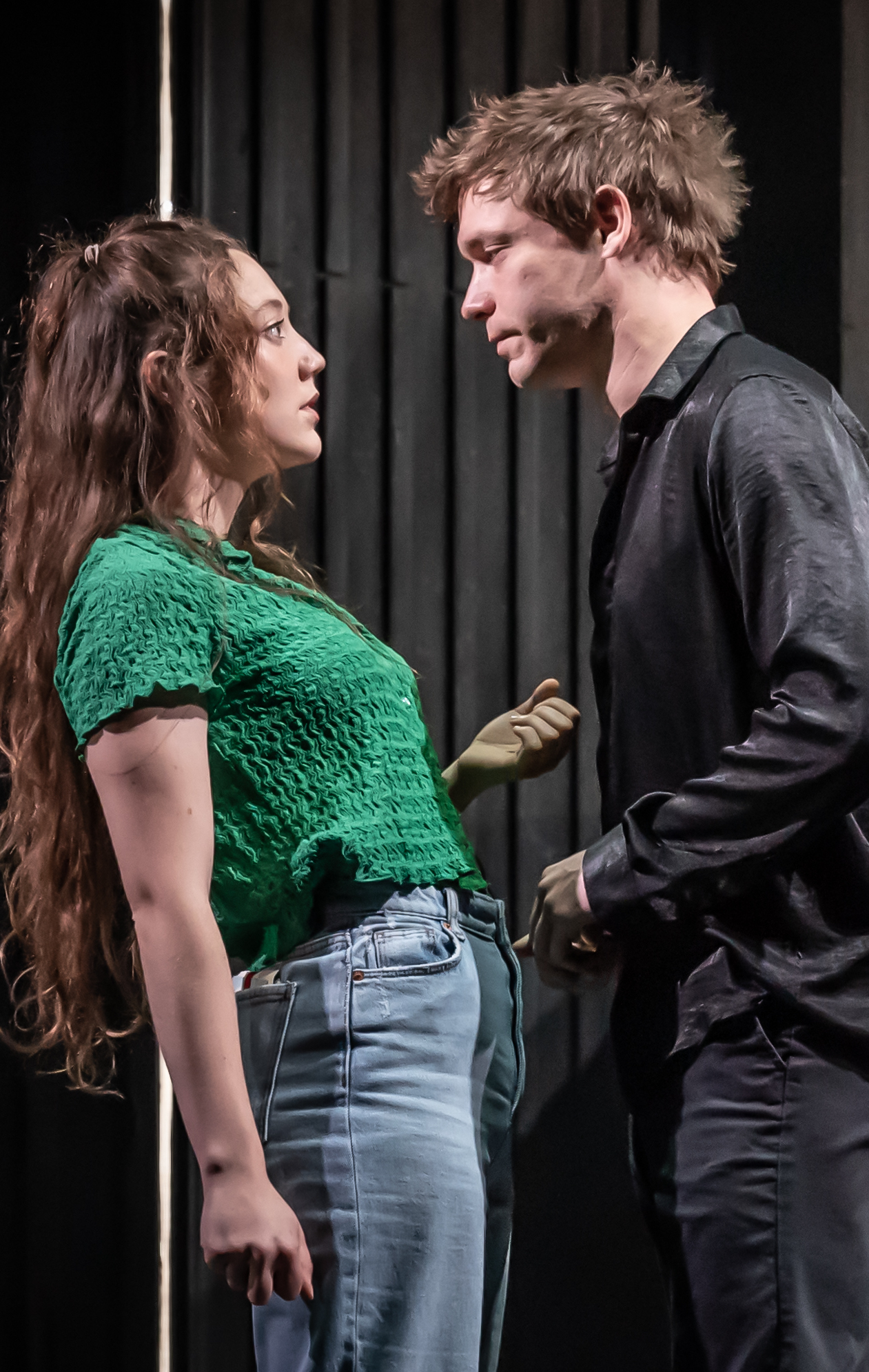This is a Hamlet for fans of speed-dating. It comes in at just over the two-hour mark, which is standard for a feature film. But considering the uncut text runs to four hours, as it did in the 1996 Kenneth Branagh film (and his earlier stage production), big chunks of text have clearly gone missing.
Only those fascinated with the Fortinbras sub-plot that snakes through the action, a counterpoint to the dynastic struggle at Elsinore, will mind most of the cuts, however. John Haidar, the stage director of the 2022 Bristol Old Vic production filmed here by Tom Morris, has rightly calculated that audiences can also manage without the whole opening scene, in which Horatio and the night watch first encounter the Ghost; gone, too, are slivers of dialogue here and there, including some of Ophelia’s mad ravings and songs.
Today’s playgoers are also used to rainbow casting and updated settings. Here the cast are in lounge suits, athleisure wear, cocktail dresses. Hamlet (Billy Howle) looks very urban, in a T-shirt and grey trousers. When we first see him, suddenly lit up in the Stygian gloom, he is sitting with a cassette recorder, playing back some of his soliloquies. He packs a pistol, though not a mobile. His chum Horatio is female, and Black; Guildenstern is also female, and Welsh.
But this isn’t a thoroughgoing makeover of the play, like Robert Icke’s Hamlet at the Almeida, where key scenes were played out as feeds from surveillance cameras and the Big Brother nature of the Danish state apparatus was a focal target. When the beeper on the watch of Polonius (Jason Barnett) goes off just as the Players are starting to perform Hamlet's king-baiting The Murder of Gonzago, it’s a bit of comic relief, not a thematic statement.
No harm in that, though the production has no deeper statement of its own to make with its updated style. It’s aim is to entertain and, perhaps, to be relatable and reach a younger audience — the afternoon I saw it live in Bristol, it definitely engaged the many school parties there. It is also a vehicle for Billy Howle, a graduate of the Bristol Old Vic Theatre School, to flex his stage muscles.
Howle is best known for some remarkable TV performances: the dogged Dutch diplomat in The Serpent who pursues the serial killer Charles Sobhraj; the unsettling controlling husband in Chloe; a conflicted brother in a murderous Mormon clan in Under the Banner of Heaven. Onstage, he is a lively presence, but sometimes a tad too much so. He negotiates the text like a high-performance car on a city street, revving up for noisy stretches with his foot firmly to the floor.
This is of a piece with the production, which is determinedly high-energy. Scene changes are swift, achieved with a revolve that moves the action seamlessly from one side of a tall wooden-slatted wall to one with a staircase behind it. Dialogue tends to come in a rush, and only Claudius (Finbar Lynch) noticeably allows himself time to breath and speak sotto voce, even to pause. People coming to the play for the first time may find this aids the suspense, but alas I did not.
 When Howle is the only subject in the frame, which he is a lot, you start to notice some tics in his technique. One such is his tendency to add gestures for each image in the text: pointing up for Heaven, down for the other place; tapping his chest when outlining his emotions, his head when he’s chewing over ideas. He also pats his face and windmills his arms frequently, bringing to mind the passage where Hamlet instructs the Players in the acting style they must follow, presented here as him making fun of the how-to guide for actors he is reading from: “…do not saw the air too much with your hand, […] but use all gently, for in the very torrent, tempest and […] whirlwind of your passion you must acquire and beget a temperance that may give it smoothness”.
When Howle is the only subject in the frame, which he is a lot, you start to notice some tics in his technique. One such is his tendency to add gestures for each image in the text: pointing up for Heaven, down for the other place; tapping his chest when outlining his emotions, his head when he’s chewing over ideas. He also pats his face and windmills his arms frequently, bringing to mind the passage where Hamlet instructs the Players in the acting style they must follow, presented here as him making fun of the how-to guide for actors he is reading from: “…do not saw the air too much with your hand, […] but use all gently, for in the very torrent, tempest and […] whirlwind of your passion you must acquire and beget a temperance that may give it smoothness”.
Temperance is not this Hamlet’s main mode, though. And his plunging into the text is an odd fit with the Hamlet actually found there, the man who tortures himself because he can’t resolve what to do about the crime he has uncovered. I yearned for Howle to slow down, hesitate, express the text’s meaning with intonation, not extra volume. He is dynamic, lucid and word perfect, excellent in his harum scarum “mad” sections, very loveable, but not inward-looking enough to be totally compelling in the more ruminative ones.
HIs Ophelia (Mirren Mack, pictured above) is exemplary, a wholly natural verse-speaker who knows when to keep her face almost totally still, signalling with just a small movement of her features what she is thinking. Her mad scenes, where she doles out pills instead of herbs and flowers, are full of genuine pathos. Barnett gives a similarly adept performance, managing to make Polonius a bit of a buffoon as well as a likeable concerned dad (he returns in the final act, almost unrecognisable, as the insufferable Osric). Niamh Cusack also has a good outing as a kindly but not wildly bright Gertrude.
Morris’s film version is a straightforward account of the live performance, carefully blocked for maximum focus on the stage action and with excellent sound, There are some editing flourishes where little sequences are quickly replayed for emphasis, but the production's strong visuals are left intact. It’s good to have a record of it, the first of many, one hopes, from this venue..















Add comment